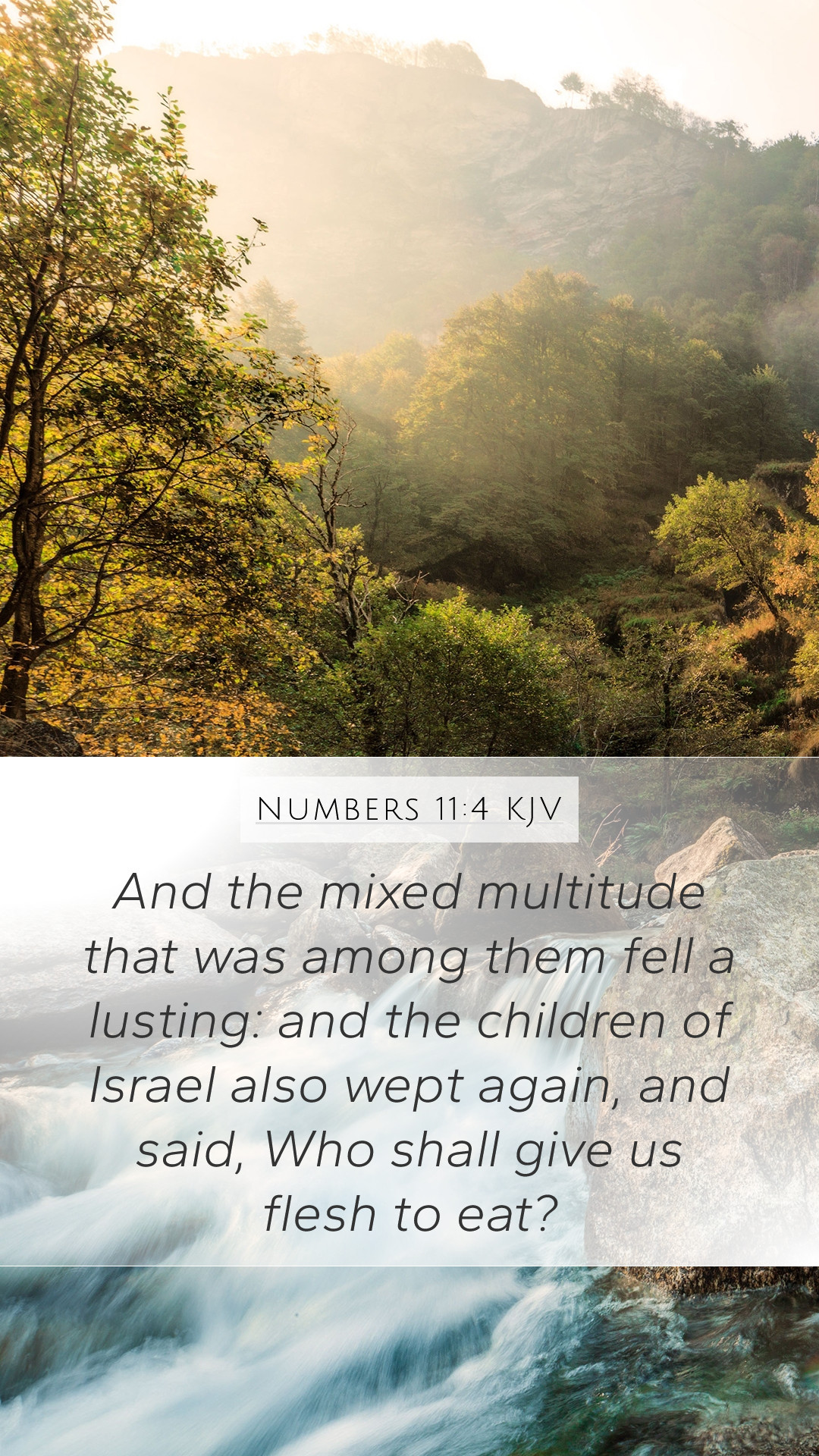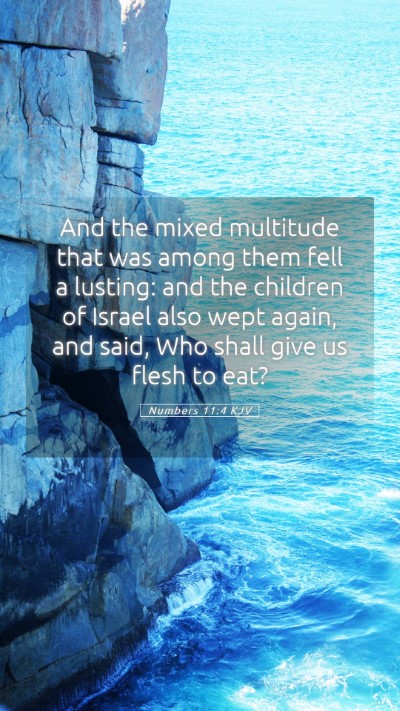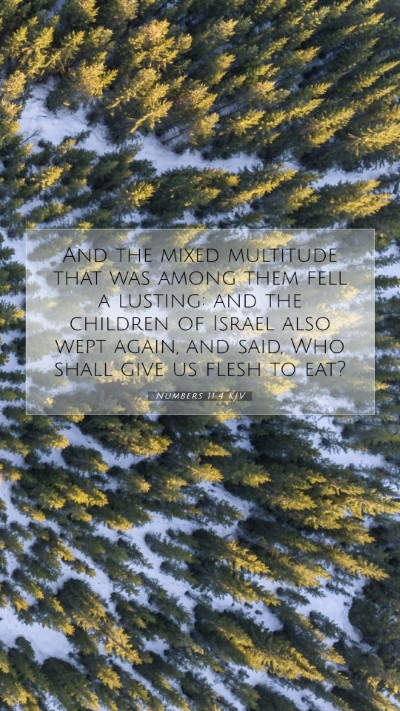Understanding Numbers 11:4
Numbers 11:4 presents a crucial moment in the narrative of Israel's journey through the wilderness, where the people express discontent over their circumstances. This verse states:
“And the mixed multitude that was among them fell a lusting: and the children of Israel also wept again, and said, Who shall give us flesh to eat?”
This portion of Scripture can be examined through various lenses provided by public domain commentaries.
Contextual Overview
In the backdrop of the Israelites' progress towards the Promised Land, Numbers 11 exemplifies challenges faced by the community. The "mixed multitude," which included Egyptians and others who had joined the Israelites, began to crave the foods they had left behind in Egypt—specifically, meat. This craving signified a deeper spiritual malaise within the people, illustrating the struggle against previous bondage and discontent with God's provision.
Commentary Insights
Matthew Henry's Commentary
Matthew Henry emphasizes the implications of this longing for meat as not merely a desire for food, but a manifestation of discontent. He notes that this craving leads to a collective weeping among the Israelites, revealing a weakness of faith in God’s sustenance through manna. This behavior highlights the dangers of yielding to worldly cravings and failing to appreciate divine provision.
Albert Barnes' Commentary
Albert Barnes focuses on the social dynamics of the "mixed multitude." He suggests that their influence stirred unrest among the Israelites, who began to reflect on their time in Egypt, where they remembered the “flesh pots” and the abundance of food. Barnes stresses that the memories of past comforts can often cloud one's judgment regarding God's current provisions, leading to false comparisons between bondage and freedom.
Adam Clarke's Commentary
Adam Clarke interprets this verse through the lens of Israel's spiritual condition. He notes that their lust for flesh was indicative of a deeper spiritual thirst that was unfulfilled. Clarke suggests that while God provided manna, a miraculous sustenance, the people's demand for meat illustrated a lack of contentment and faith. He warns against forgetting the hardships of slavery in Egypt when judging the present wilderness experience.
Theological Significance
The lament of the Israelites serves as a pivotal lesson in understanding biblical themes of trust and provision. This verse illustrates the human tendency to look back nostalgically at past situations—often glossing over the hardships—instead of relying on God’s present and future promises. It invites readers to reflect on the importance of recognizing the sufficiency of God's provision and the perils of yearning for worldly things that distract from spiritual growth.
Application for Modern Believers
In contemporary contexts, believers can draw parallels from this verse about the dangers of discontentment. Just as the Israelites longed for what they remembered from their past, modern believers are often tempted to compare their spiritual journeys with the secular world. This passage challenges individuals to focus on the blessings they currently have instead of yearning for earthly comforts that may lead them away from their faith.
Cross References
- Exodus 16:3 - The Israelites long for meat in the wilderness.
- Psalms 78:18 - The people tested God by demanding food.
- 1 Corinthians 10:6-10 - A warning against desiring evil things as Israelites did.
Conclusion
Numbers 11:4 serves as a reminder to scrutinize our desires and to nurture a spirit of gratitude for what God provides. Through reflections gathered from notable public domain commentaries, we gain deeper insights into the importance of maintaining faith amid trials and understanding that true satisfaction comes from a relationship with God rather than the fleeting pleasures of the world.
Further Bible Study Resources
To delve deeper into biblical teachings, consider engaging with:
- Bible study guides that explore the Book of Numbers.
- Online Bible study groups focused on Old Testament themes.
- Tools for in-depth Bible verse analysis.


